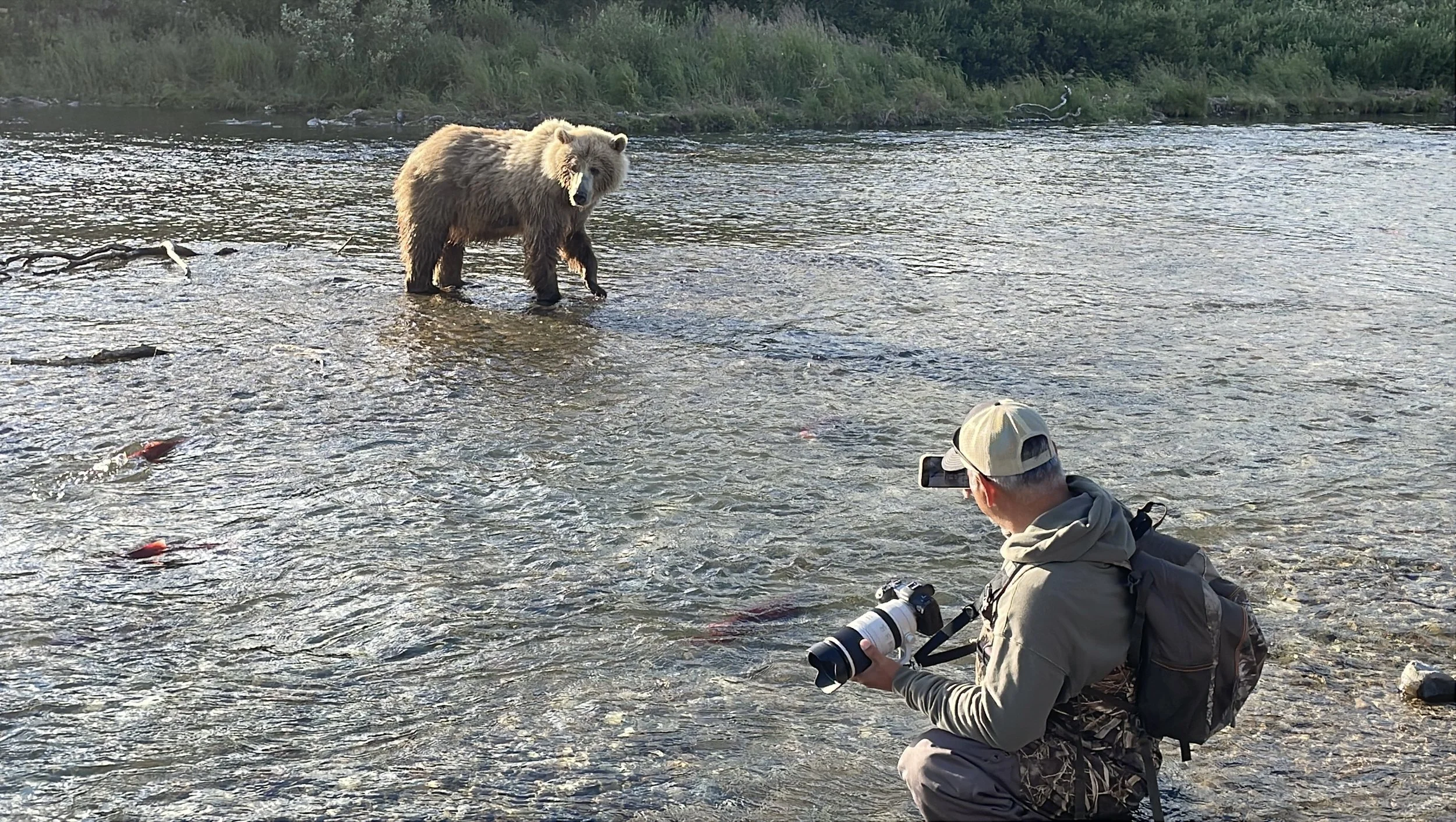One of the most common questions we get before any of our warm water trips is, “What should I wear in the water?”
Full wetsuit? Shorty? Rashguard and board shorts?
The short answer: It depends on you and your ability to handle the elements.
A longer answer: Let’s break down the real pros and cons.
Rash guard and board shorts with this friendly pod of sperm whales off Dominica.
Rashguard and Board Shorts: The Freedom Option
There’s no denying it—nothing feels better than diving in boardies and a rashguard when the water is warm.
That is my personal choice of diving gear, 80% of my time in the ocean.
You’re free. Unrestricted. No heavy neoprene pinching your neck or squeezing your chest.
You move through the water naturally. You dry off faster. You feel more connected to the ocean.
But it comes with limitations:
“I personally do not like full wetsuits. But I respect the ocean enough to know when it’s smart to cover up.”
Exposure: The sun will roast you faster than you realize.
Scrapes and Stings: Jellyfish, floating debris, jellyfish, and even incidental contact with wildlife can and does leave a mark. Oh and did I mention jellyfish???
No Thermal Buffer: Even in 78°F water, after hours floating or motoring between drops, the chill can creep in—and it gets worse if clouds block out the sun.
Best for:
Short sessions and warm water locations.
Midday sun.
Quick drops (like orca encounters)
Diver with curious blue shark off Cabo.
Full Wetsuit: The Protected Option
A full wetsuit is armor.
It protects against sunburn, jellyfish, reef scrapes, and gives you some insulation on long days out on the water.
But there are trade-offs:
Restricted movement: You’re bulkier, stiffer, and less agile.
Overheating: Especially while sitting on the boat between dives.
Increased Buoyancy: Neoprene floats—which means you'll work harder to stay down while snorkeling or free diving. So you will need dive weights to help you counteract the wetsuit’s buoyancy—even a thin 3mm suit makes a noticeable difference.
Freezing my ass off between dives. Catalina Island. 2006.
However never forget… the ocean can be unforgiving.
No matter how warm the water feels, the open ocean can chill you quickly—especially when clouds block out the sun.
And whether you’re in a wetsuit or board shorts—always bring a boat jacket. You’ll never regret having it, but you’ll definitely regret not having it when you need it most.
Shark Diving Reality Check
When it comes to shark dives, full coverage isn't just about staying warm—it’s about staying safe.
While I usually wear rashguards and board shorts for dolphin and whale encounters in warm water, when I dive with pelagic sharks, like makos and blue, I always wear a full wetsuit.
Diver and curious blue shark
Here’s why:
Exposed arms and legs are at greater risk during a shark dive.
Sharks are curious, and an unseen one can glide in closer than you realize.
A full wetsuit protects your skin and reduces the risk of a bump turning into a bite on your soft fleshy parts.
Best for:
Extended in-water time (multiple hours)
Cooler early mornings, and cloudy days.
Sharks and marlin baitball diving.
Shorty Wetsuit are The Middle Ground
Think of a shorty wetsuit as the best of both worlds—some protection, more freedom.
It covers your core and gives your arms and legs more mobility.
You won't overheat as easily, and you will stay a little bit warmer while in the ocean for an extended period.
Downsides:
Limited full-body sun protection.
Legs and arms exposed for jellyfish or debris bumps.
Some added buoyancy, but less than a full suit.
Diver wearing a 1mm dive skin while snapping images of Gambit the crocodile off Banco Chinchorro.
So... What Do I Wear?
If you ask me:
Freedom wins when it can. Rashguard and boardies when the action is hot and fast-moving.
Protection wins when it must. Wetsuits when you’re logging serious hours or facing unpredictable conditions.
The ocean doesn’t care how comfortable you are—it tests you, humbles you, and rewards those who come prepared.
Prepare for it. Respect it. Adapt to it.
Embrace the unknown… and we’ll see you out in the wild.
Thank you for reading our Blog.
*New Blogs posted 3–4 times a week. (sometimes more.)
Follow along for fresh stories, trip updates, and raw moments from the wild.







